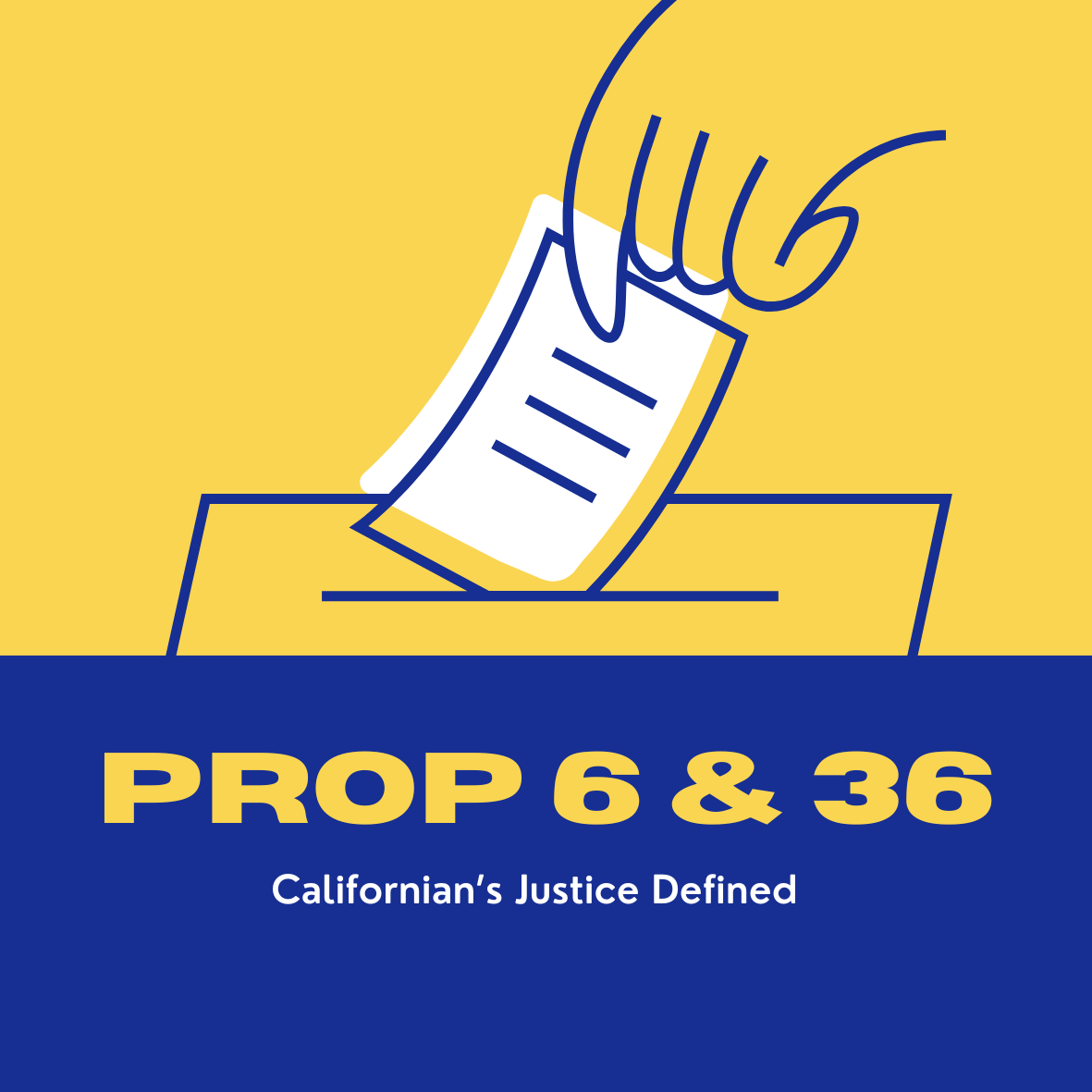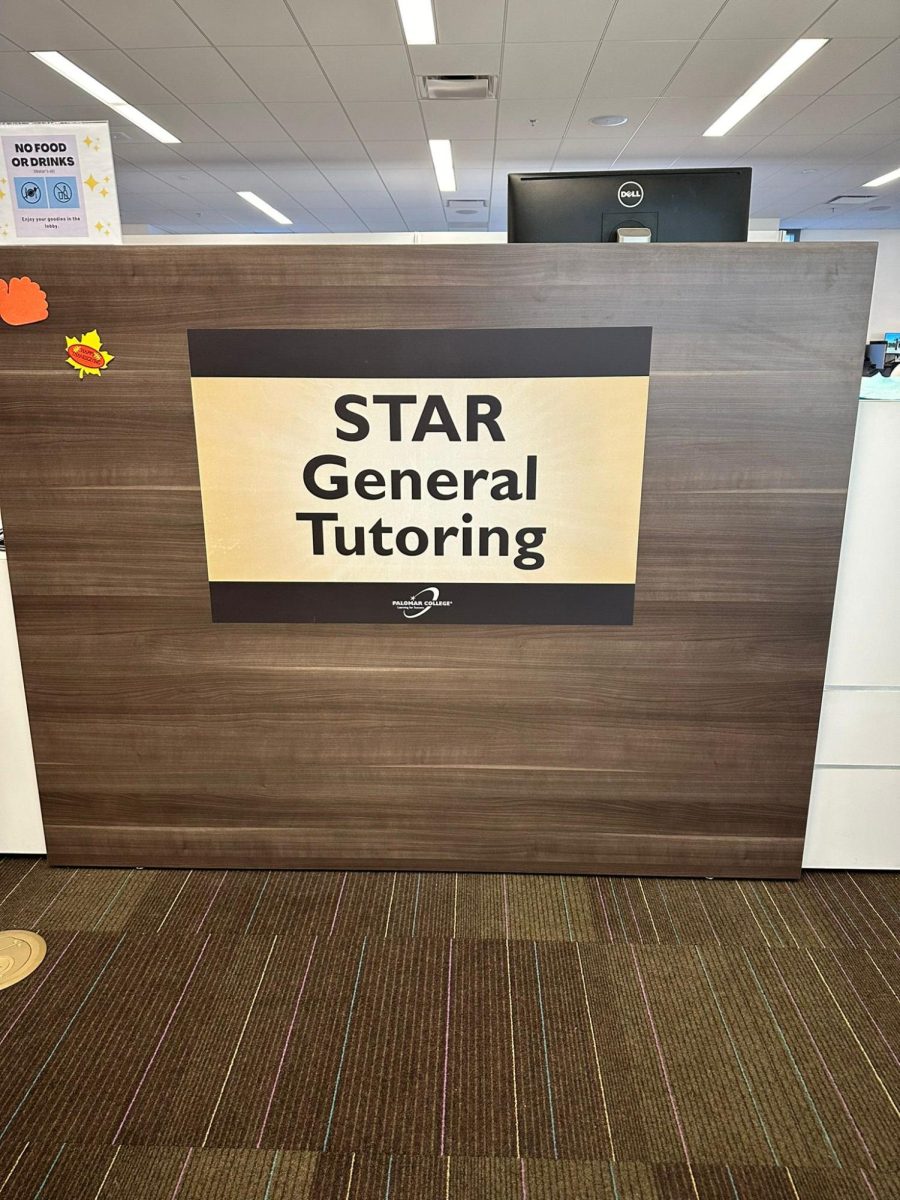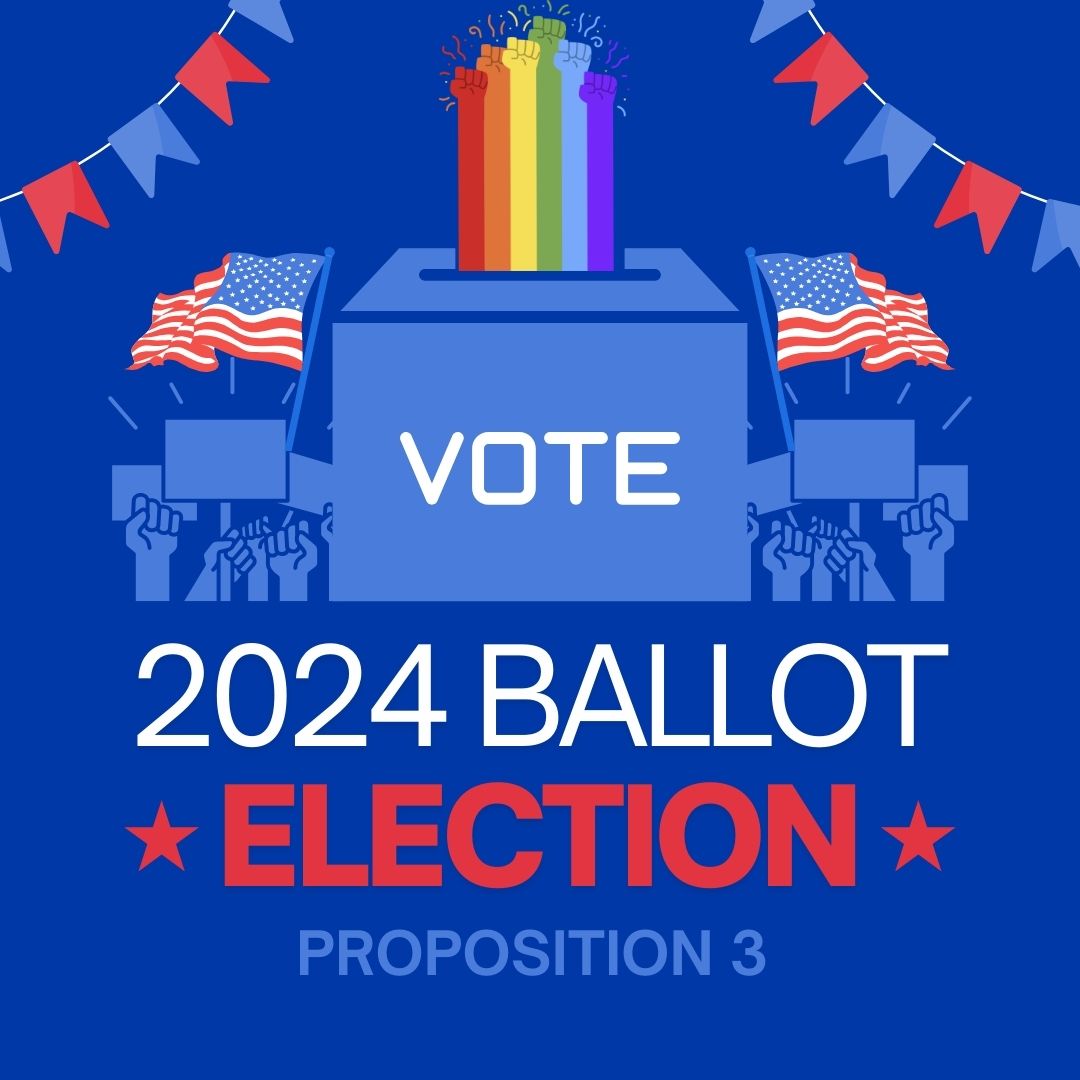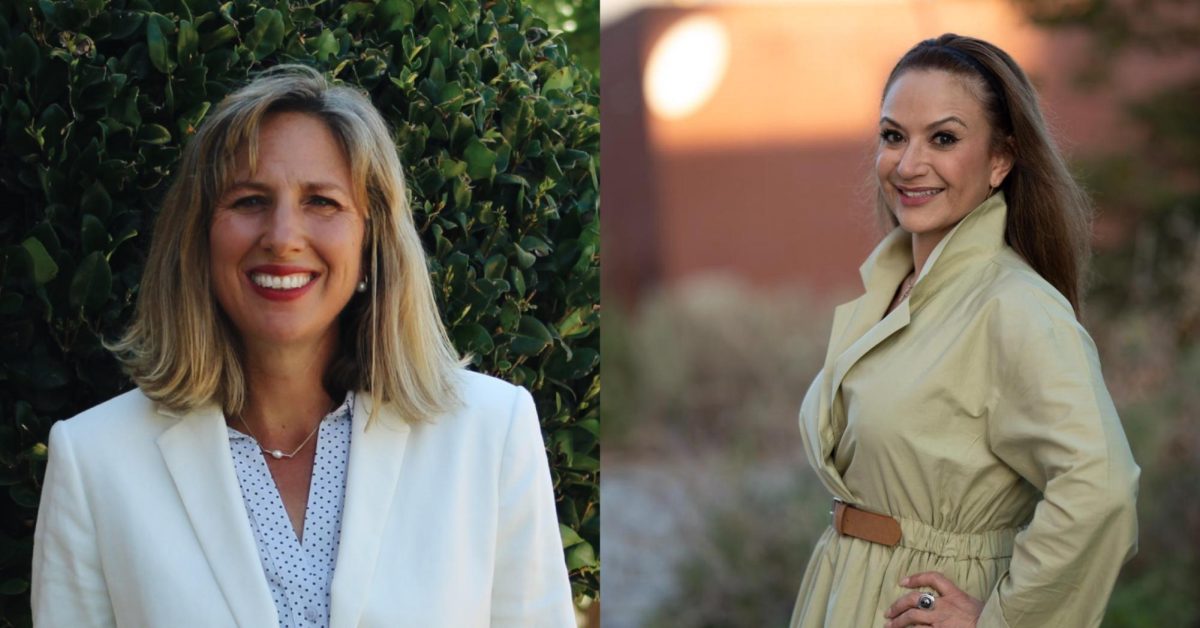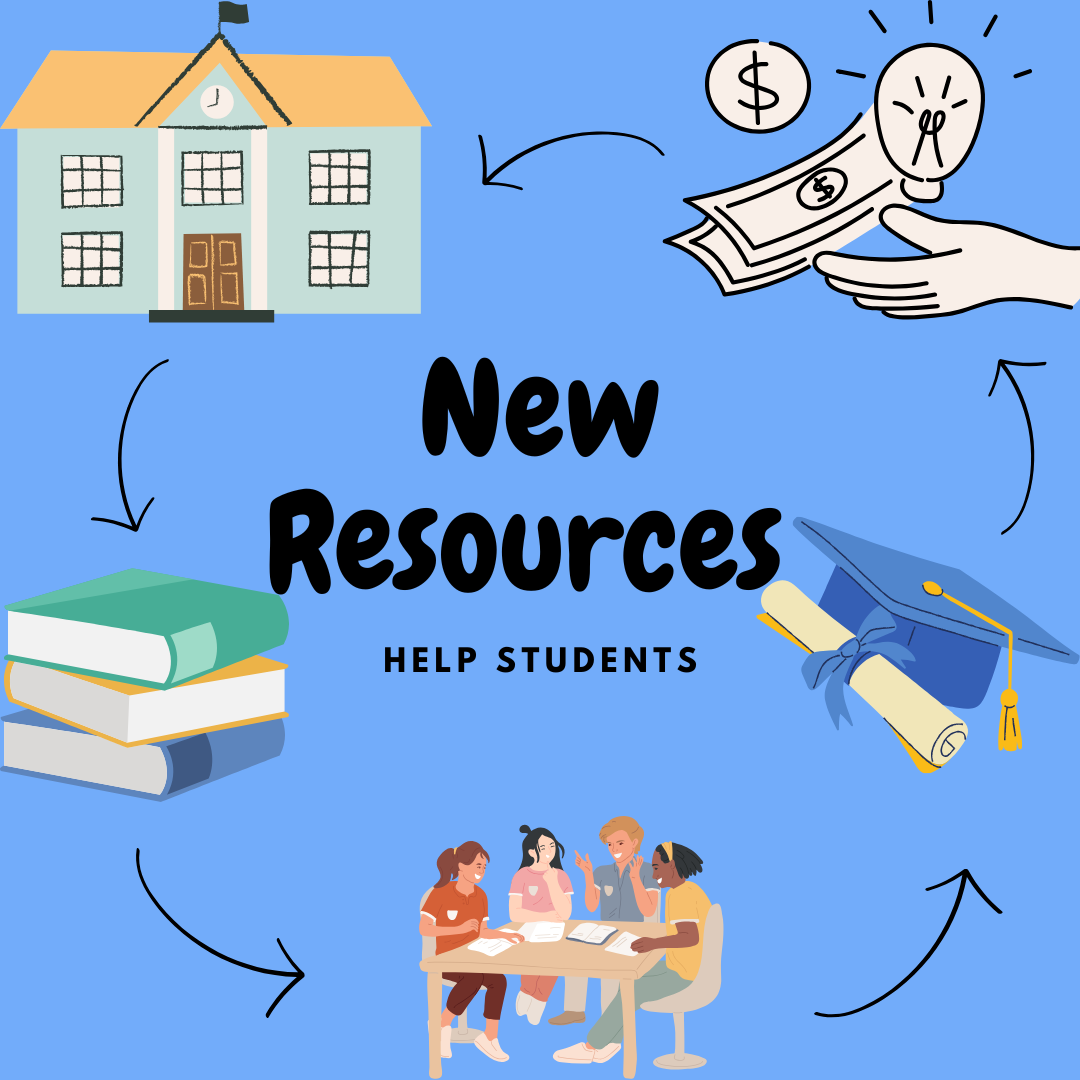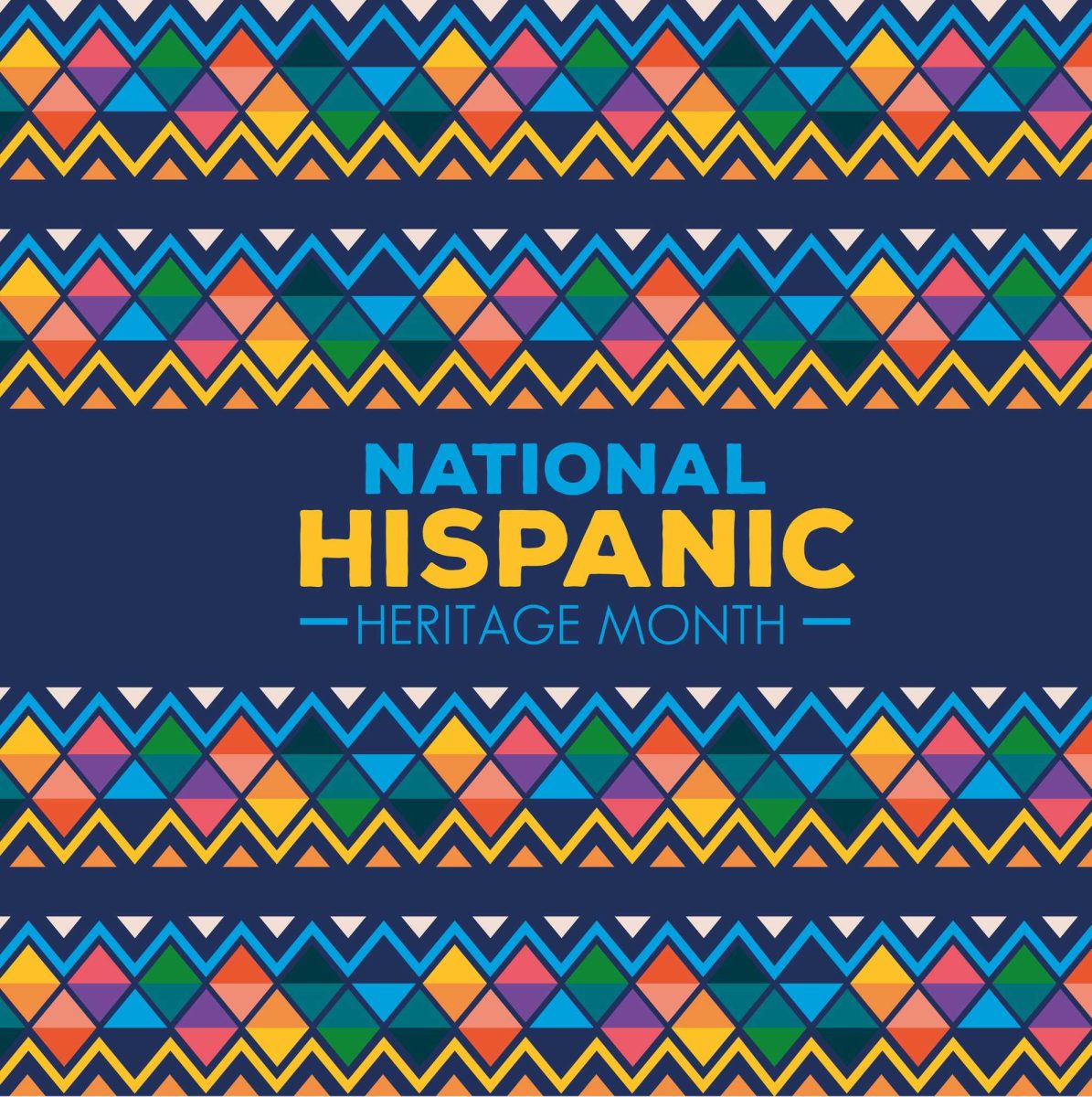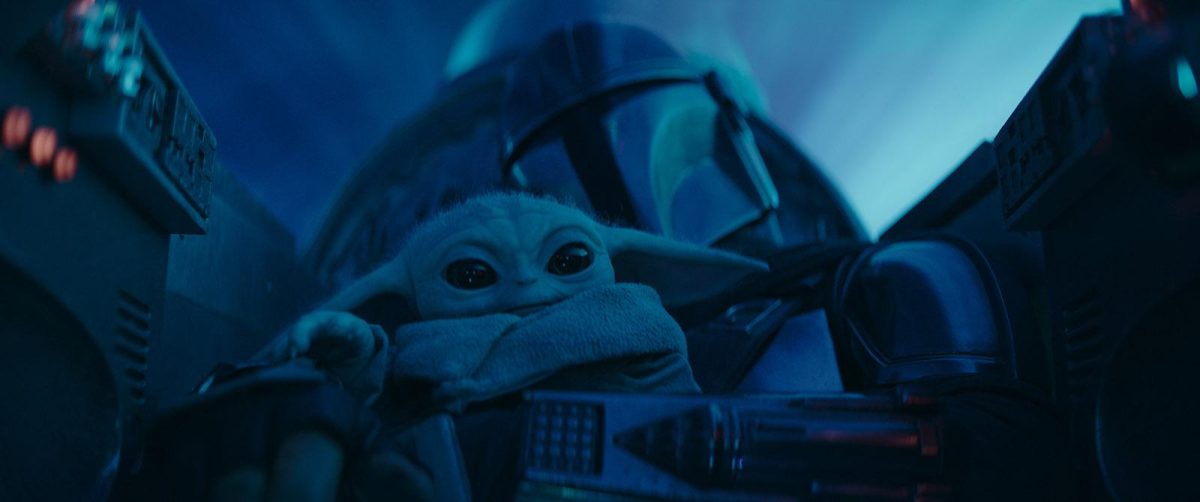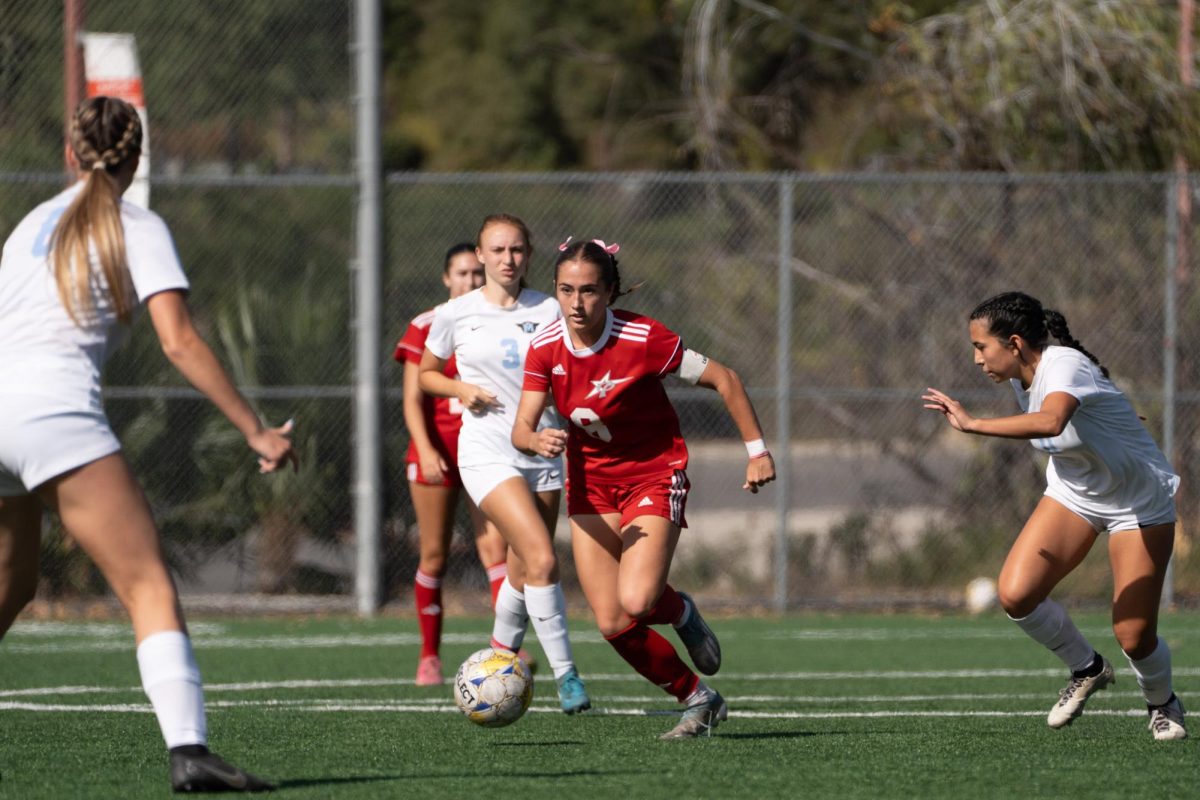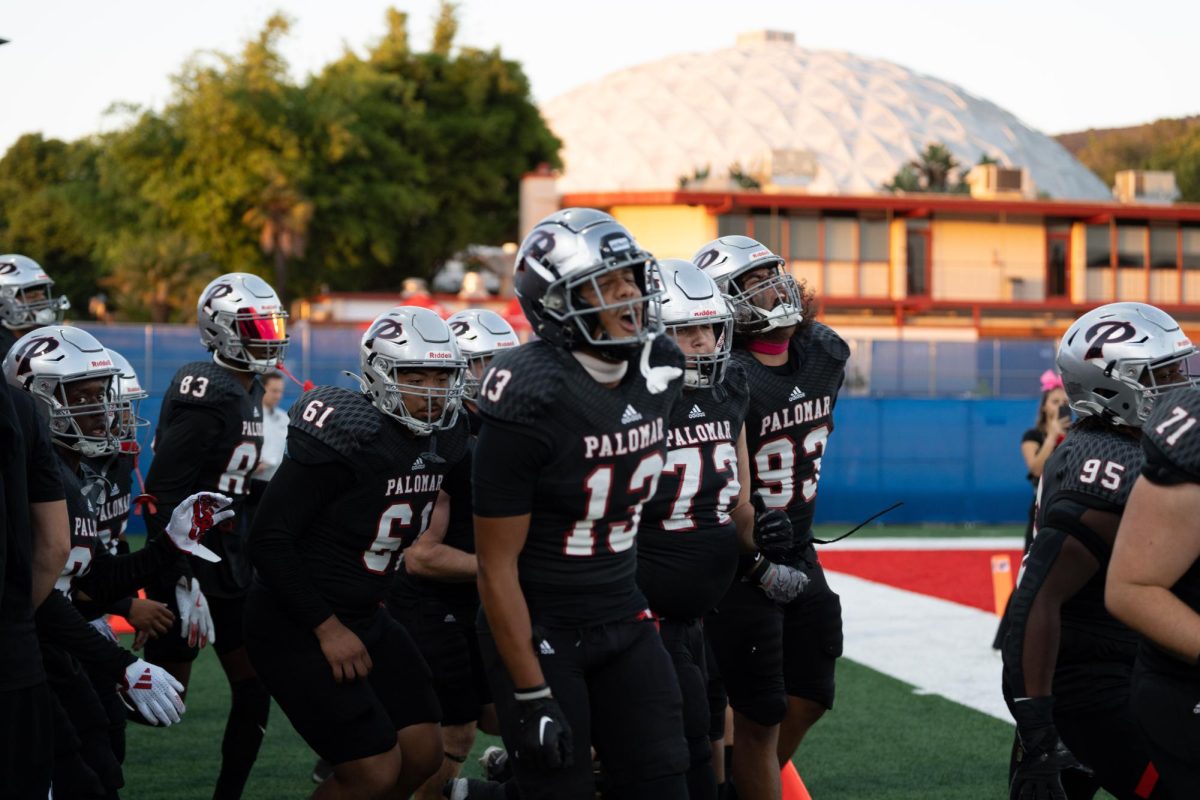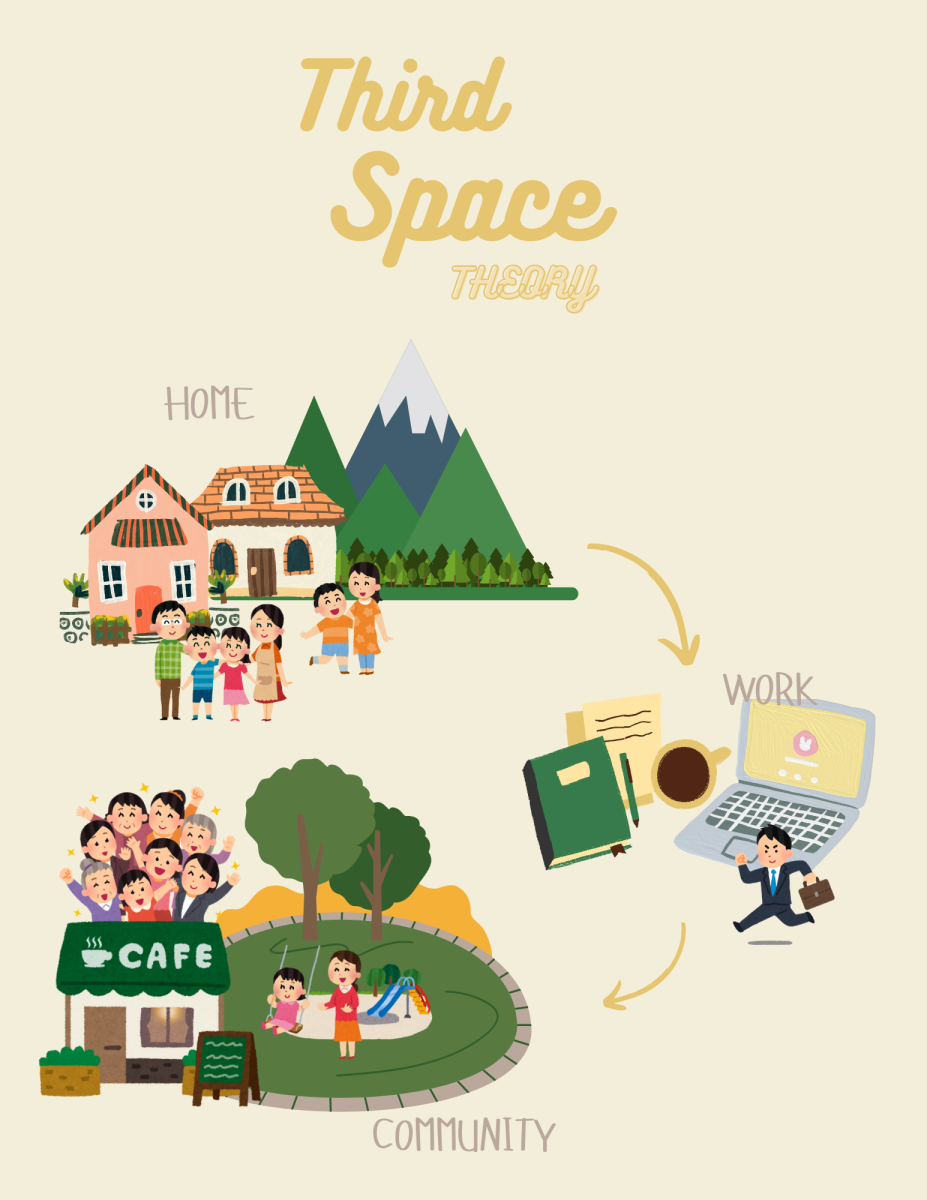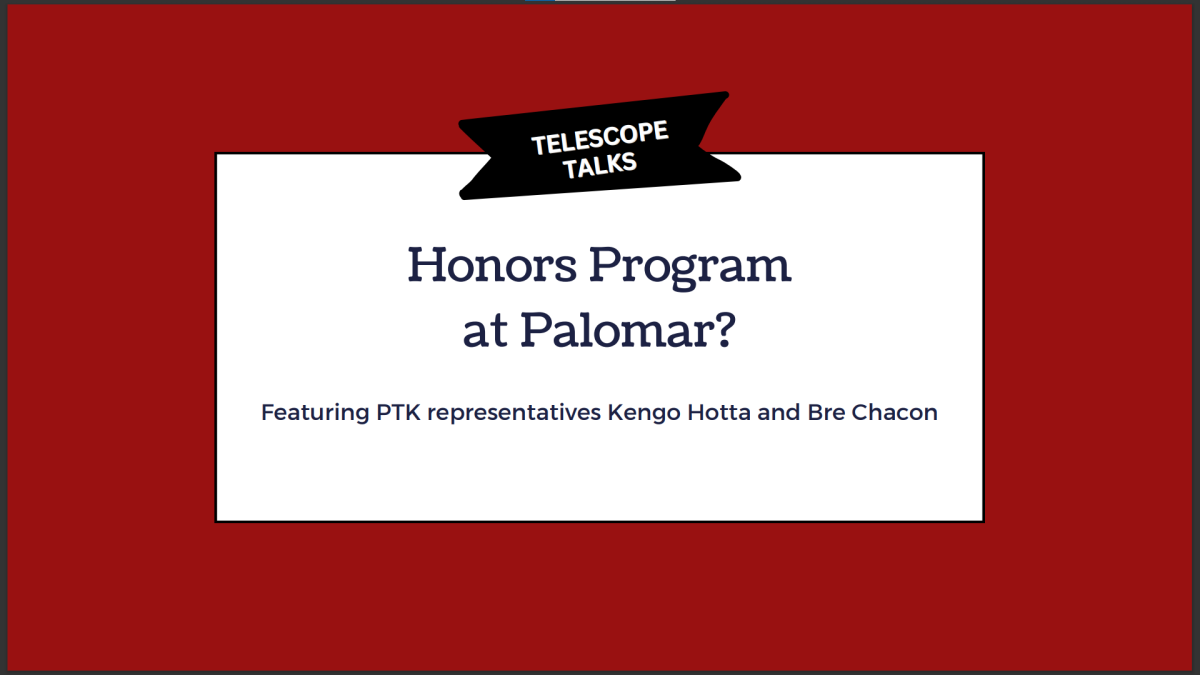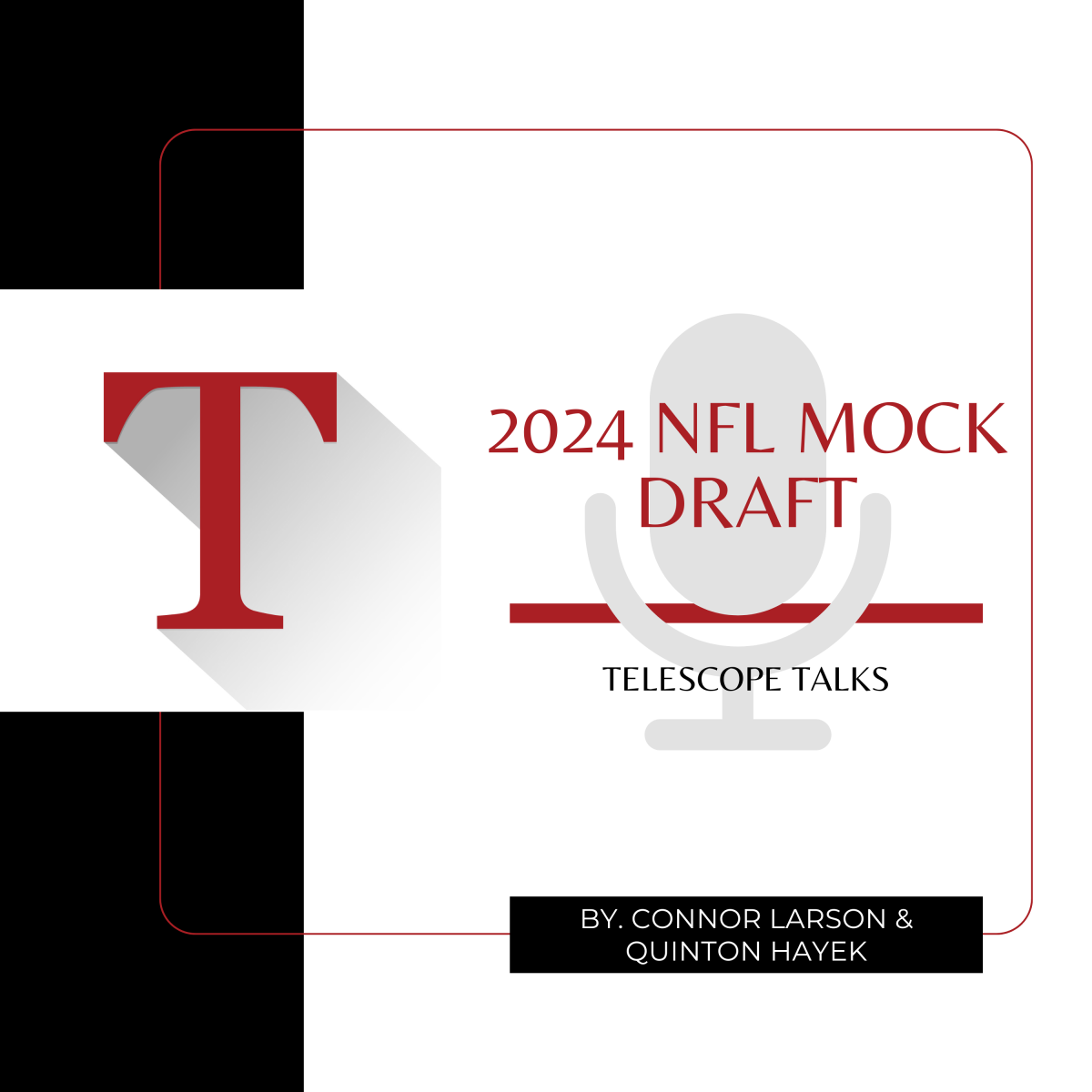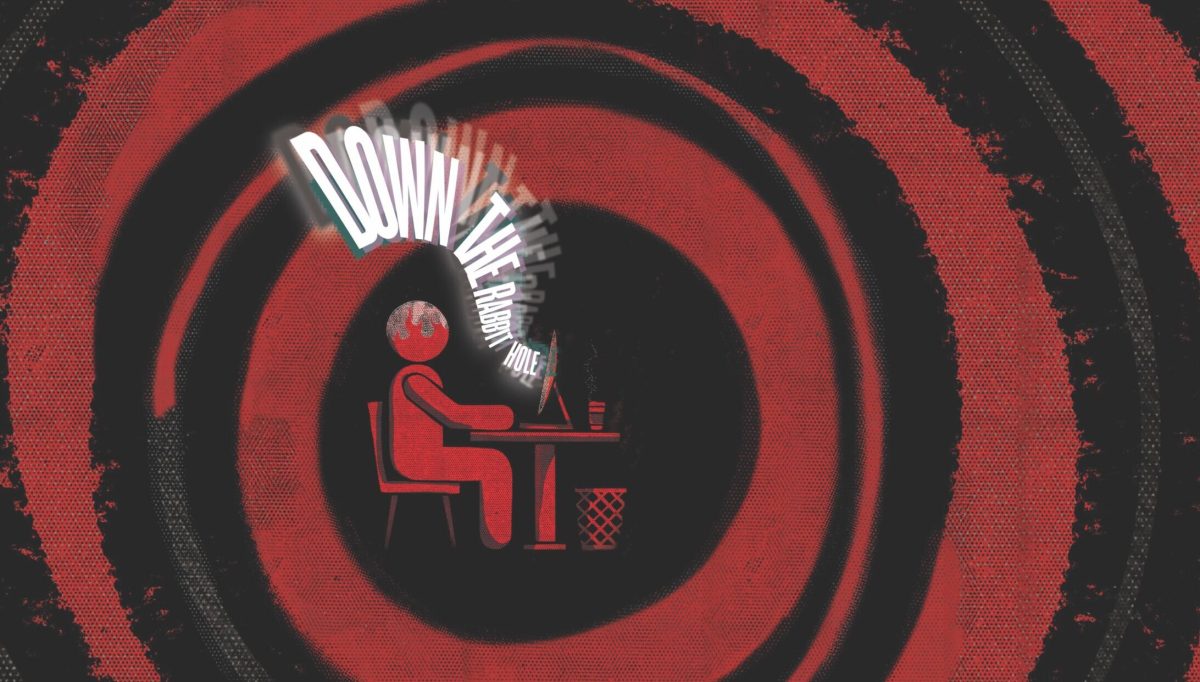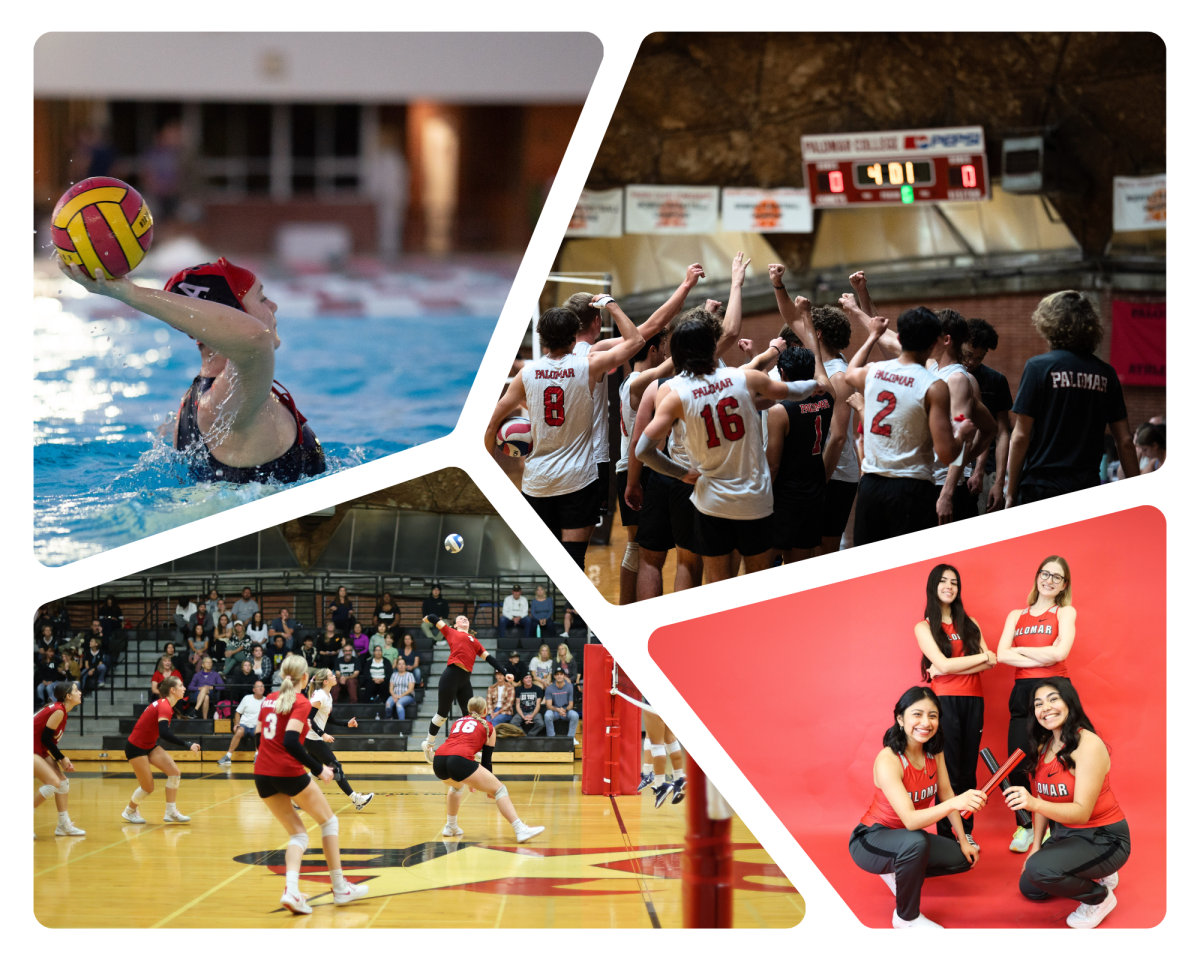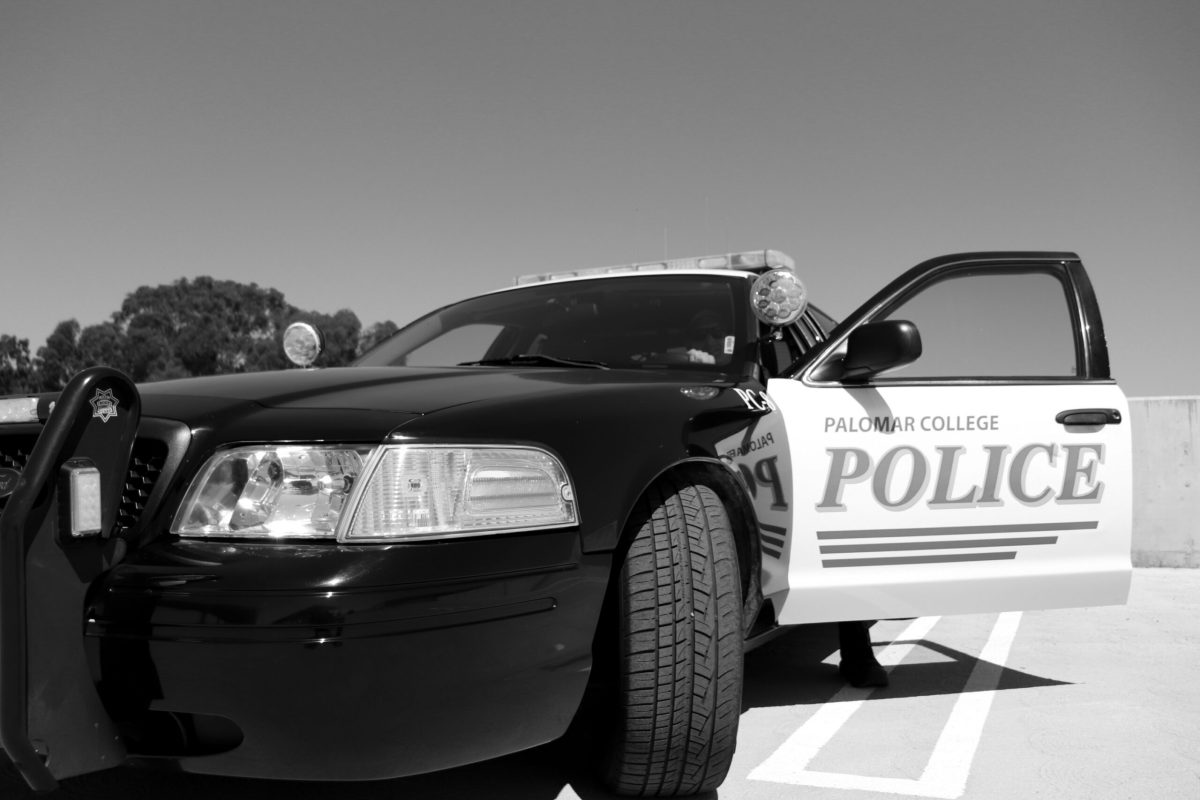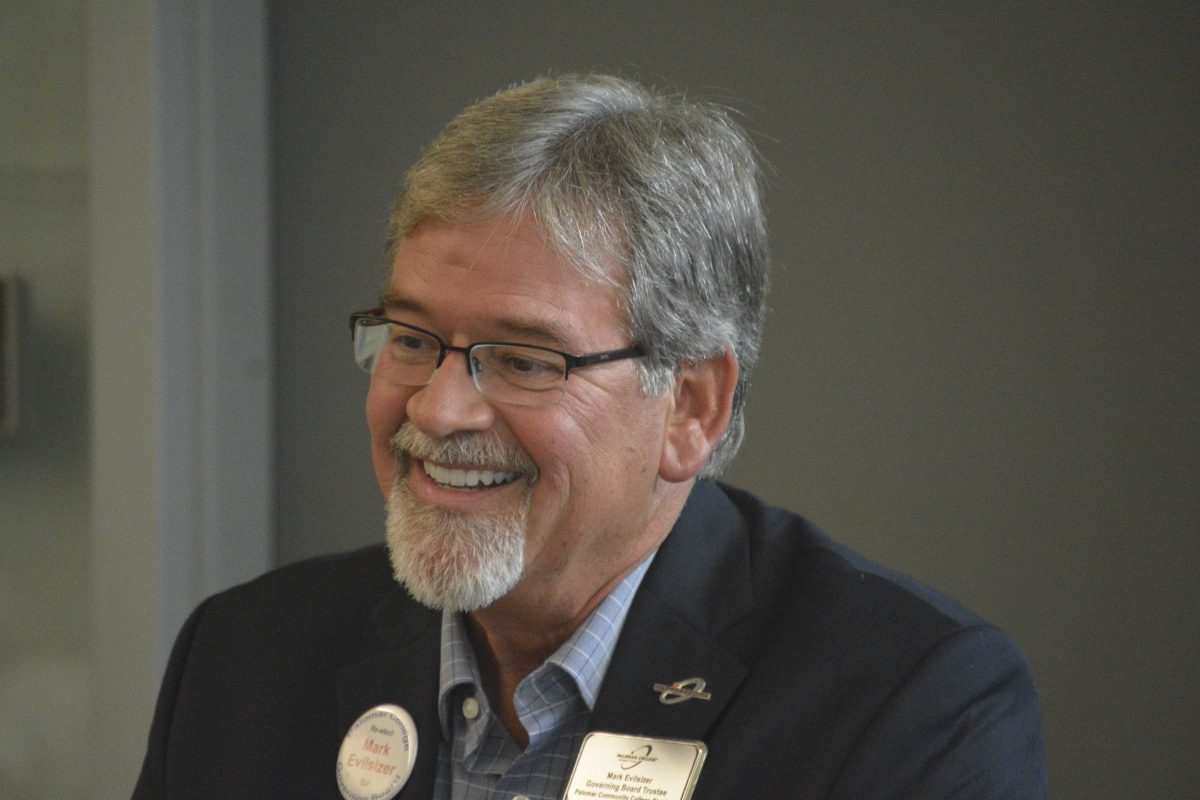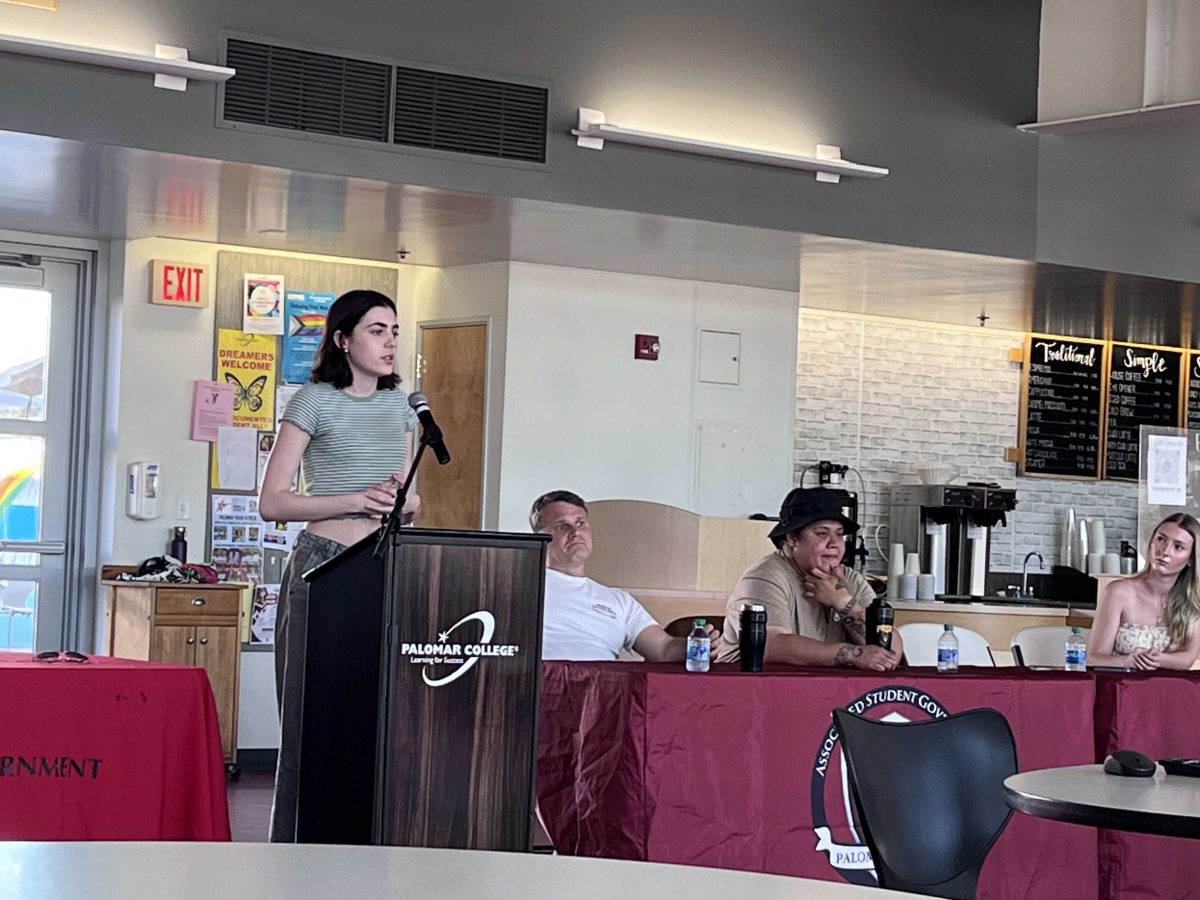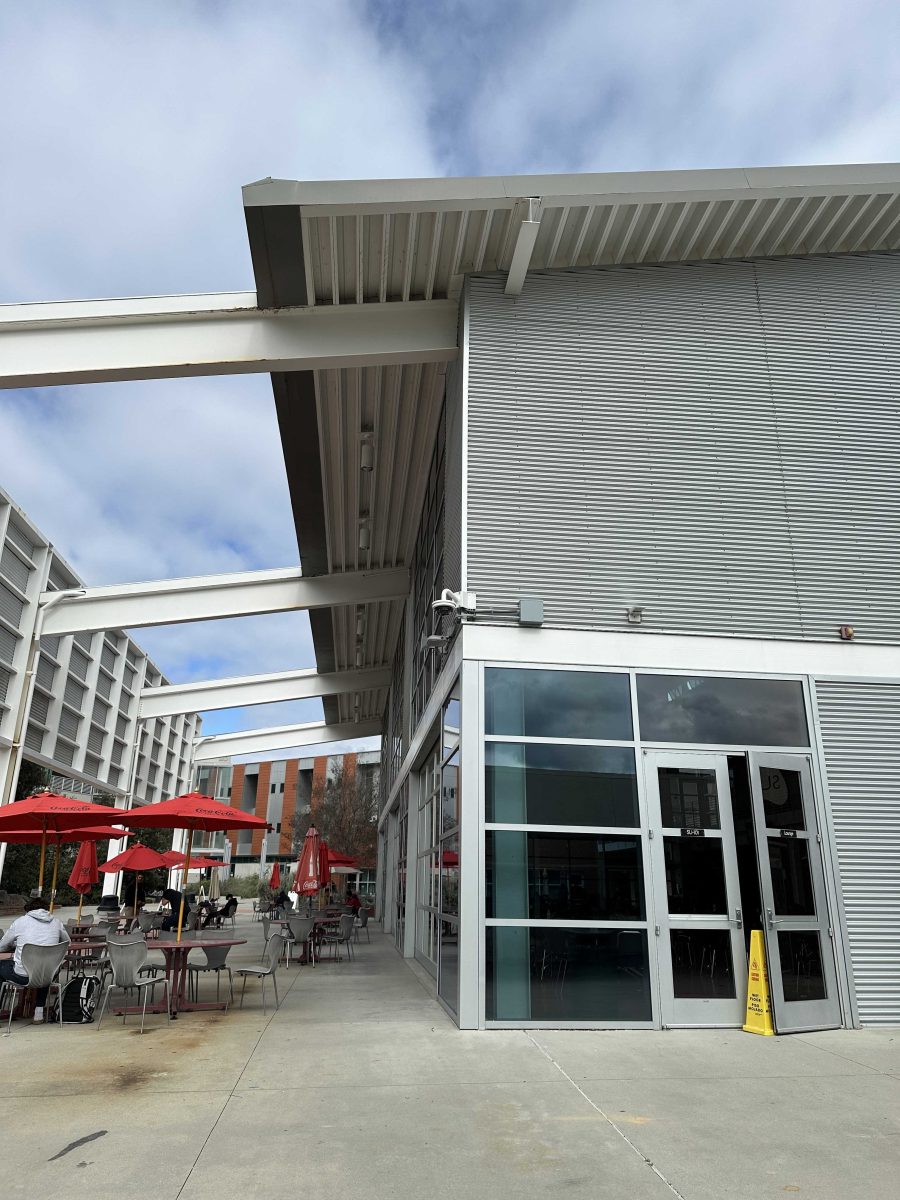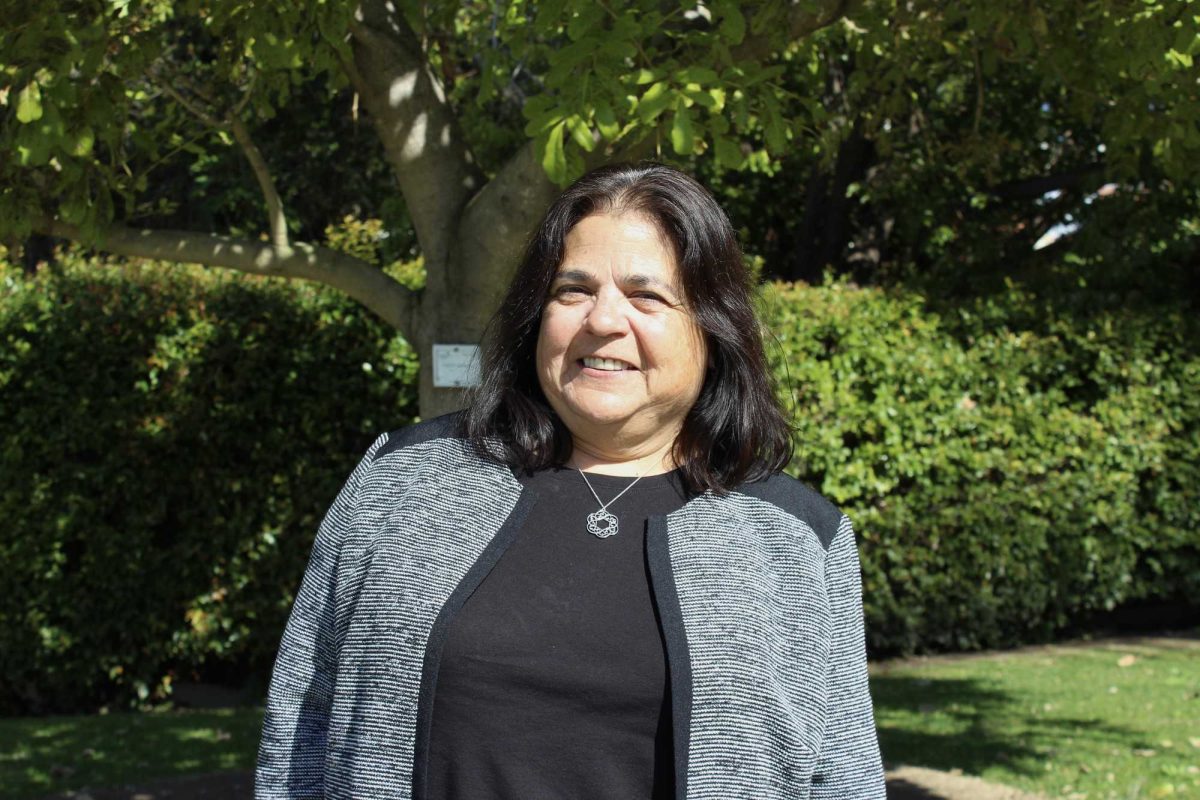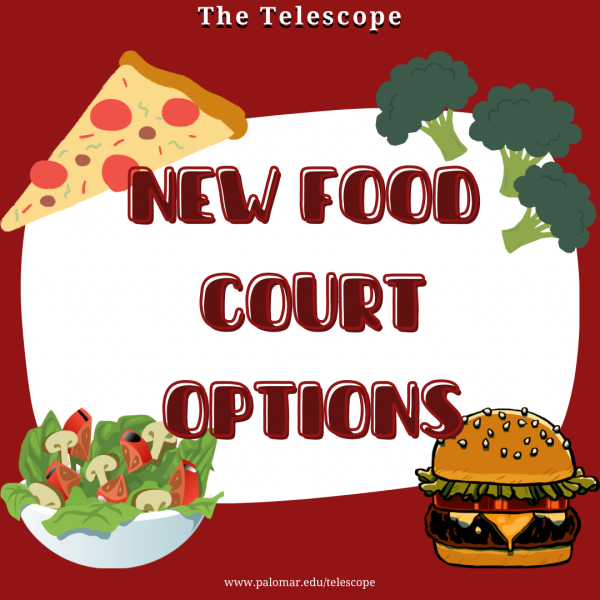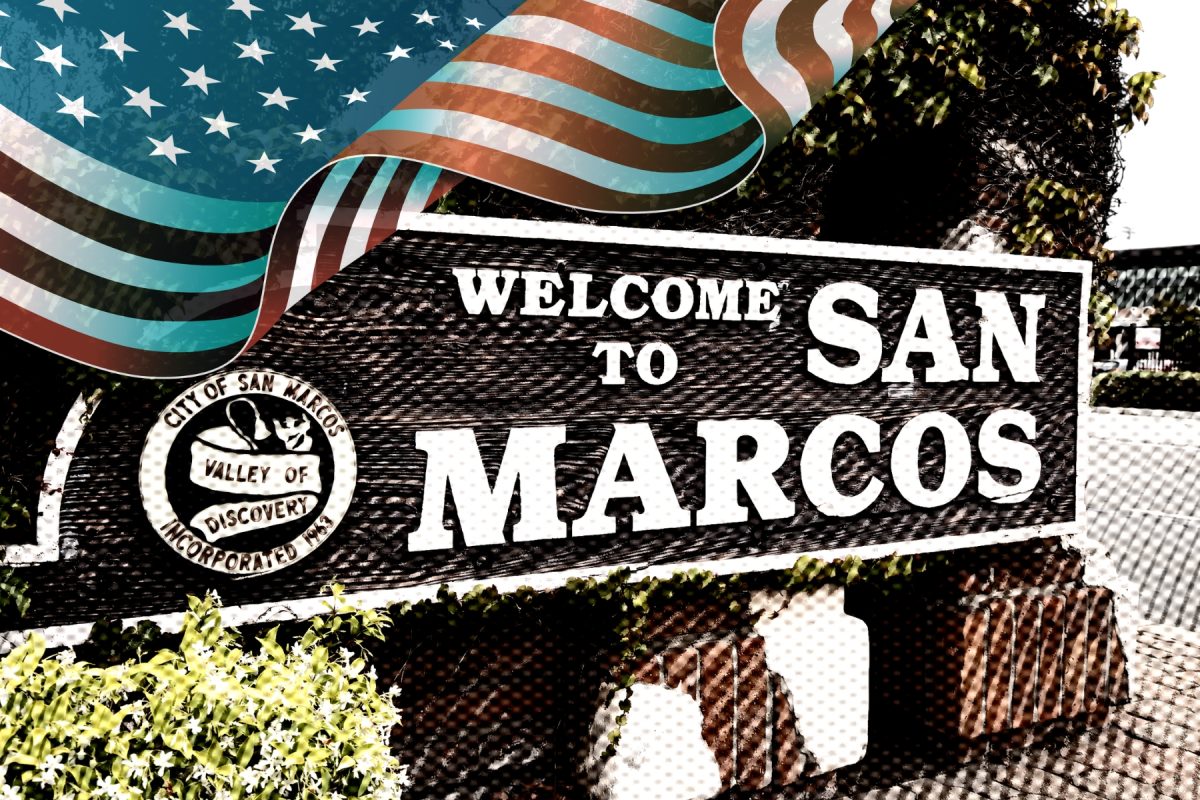Q: What is your educational & career background?
A: I have a Bachelors in science in business administration from the University of Redlands. I also have a Masters of arts degree in executive management from Claremont Graduate University. I just retired from my career in aerospace. I was involved in aerospace engineering and manufacturing for over 32 years. I’ve worked on a lot of exciting projects in the aerospace industry. Everything form B2 bombers to F18 fighters to things I can’t talk about to commercial aircraft. I’m a retired aerospace analyst.
Q: Why are you running?
A: I served on the board for 16 years. I was going to retire because I’m retired from my aerospace career. I decided to run again now that I have more time to be able to devote to Palomar College. I like serving the college, I like helping students. I like all of the wonderful things we’ve done over the 16 years that I’ve been a Board member It’s great to learn and teach in new spaces like this. I want to perpetuate and keep that going.
Q: What is your ultimate campaign promise & goal?
A: I have a lot of vision looking forward for the college. I want to continue providing things for students. I think that student housing is an important requirement for the future. Housing costs in North County are exceedingly high. It’s hard for students to afford an apartment. So if we have affordable student housing on campus, I think that’s a very worthwhile goal.
Innovative programs for students, like our drone technology that is really cool. Artificial intelligence, cyber security, cloud computing. There’s just so many emerging fields. If we have programs that help our students get good paying jobs out there, then it’s a win-win. Those are the kinds of things that I want to have.
Q: What separates you from other candidates?
A: Probably my experience. You know 16 years is a lot of experience and I think I’m one of the few candidates that has a vision for new programs and projects for the campus. One of the other things I think that campus can really use to generate revenue which would help us with student scholarships, providing financial aid for students are things like a solar farm out in Borrego Springs. We have approximately 300 acres of land donated to the district out in Borrego Springs.
We can use unused land, our 86 acres out there in Fallbrook to lease to businesses again to generate sustainable revenue.
Those are the kinds of things I’m working with the Board on. We’re working with the President to explore and just get information on that before we bring it up with the public and get the shared governance process on it.
Q: What is your history with Palomar, and why is the college important to you?
A: I started teaching at Palomar college in 1996. I was a part time instructor. I taught in the business curriculum. I taught a supervisory class for five years. As a part-time instructor I looked around me and saw that part time faculty were not getting paid what they were worth. They didn’t qualify for any office hours or health benefits. I helped organize the Palomar Faculty Federation in 2000/2001. I was elected for the board in 2002. So it’s a long history.
Q: What is the biggest problem facing Palomar, and how would you help fix it?
A: I think that the budget for the college needs to not be solely dependent
on Sacramento. If we generate some of these revenue generating sources like a solar farm, leasing land to retail businesses to generate income from the district, that makes us less dependent on Sacramento for our budget. The funding formula is going to change over time so I think it’s very important for the district to explore alternative revenue generating bonds. Money drives so much, it drives programs, facilities, and hiring faculty.
Q: How will you help improve Board relations with faculty?
A: I’ve always had an open-door policy with the faculty, and often times they don’t approach me as often as they should. I’m willing to answer emails, telephone calls. I think communication is very important. I think town hall meetings would perhaps be a very important venue to have, with all constituencies, not just the faculty, not just the union, but the classified staff, students, The Telescope. So we can get the word out and everybody can share information accurately about what’s really going on, not innuendos, not hearsay, not rumors. So communication is a very important thing that I’d like to see.
Q: How much time do you spend talking to students, and trying to understand their needs through your conversations with them?
A: I run into a lot of students when I’m just out and about in the community. I work with a lot of young people, I’m on the Board of Encuentros leadership. Encuentros is a non-profit organization that’s committed to working with Latino males to keep them in school to get them into college and get them to come out with a degree or certificate.
Q: What do you believe students’ biggest problem is, and how would you help fix it?
A: I think because so many of our students are first generation in their family to attend college, many are low income. [We need] to ensure that we have a welcoming atmosphere here at Palomar College, and provide students services to them.
If you don’t feel welcome, if you feel alienated in some fashion, your chances are probably higher than if you felt welcome and had a space to share with students such as yourselves.
Q: Do you plan on maintaining a strong relationship with the student body after the election, if so, how?
A: We have a student government president on our Board, they sit on the Governing Board and their role is to help the Board communicate and hear from the ASG. Who hopefully are spreading the net wide with the student body to relate to us what their concerns and issues are.
[Also], again often times just talking with students, being in the community or hearing from friends what some of their challenges and issue are. Or reading stories from The Telescope, that’s another source of information where we can hear about student concerns and perspectives.
Q: What do you believe the role of The Telescope is on campus, how is it important to the community?
A: I think that The Telescope is a very important means of communication for the campus. It informs the students, faculty and community members about things that are going on around campus. Everything from Governing Board meetings, to student athletic events, to theatrical plays, to editorials from the students. But its primary purpose I think is to help train journalists.
Q: Is there anything you’d like to add?
A: You know, one of the things I’d really like to see at Palomar.. We have perhaps the highest number of veterans of any college or university in the State of California. We carve out special spaces for our veterans to support them. They have computers they can use in the Veterans Center, they have counseling, and tutoring services. The LGBTQ community has similar space and services.
I’d like to see us institute a Latino service center. Because Latinos are the quickest, fasting growing demographic at the college, and I feel many of them have special challenges and need a space of their own … I think if we had space dedicated for Latino students that would be very, very useful – and help the college to retain Latino students.
Another opportunity for the college is more faculty diversity. Over 70 percent of our faculty are white, I’m white, I have nothing against white people. But we need to have more teacher demographics that mirror the student demographics.
Research clearly shows that when you have professors or teachers in the classroom that look like you, that can relate to you, that share your journey, your chance of success are even higher. Now the faculty here at Palomar are outstanding, I have nothing against the faculty, they’re the draw for the college … but I’d like to see us make some inroads on hiring for diversity.

